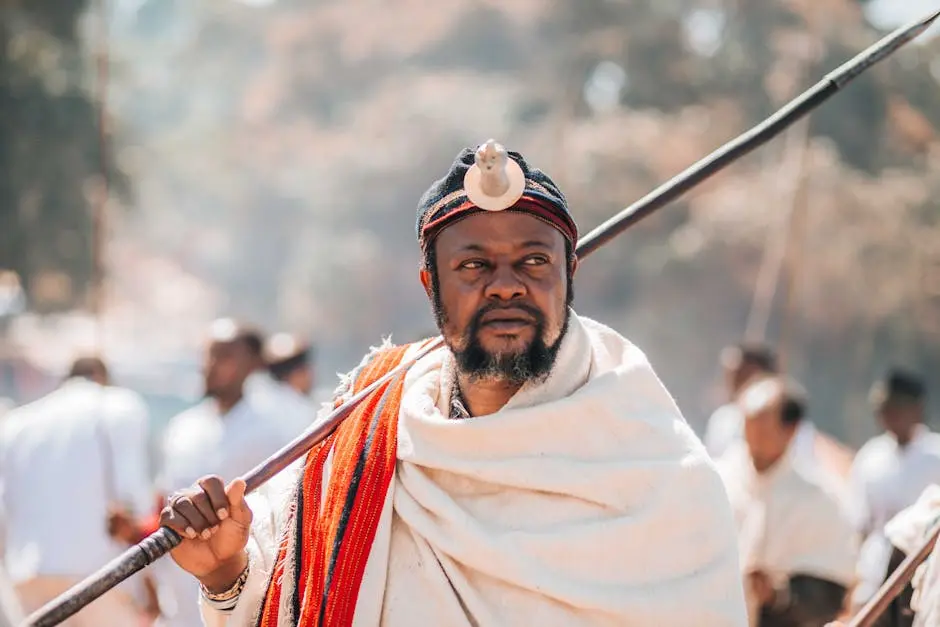- Understand Ghana's Cultural Diversity
- Participate in Local Festivals
- Visit Traditional Markets and Artisans
- Engage with Local Communities
- Explore Historic Sites and Museums
- Embrace Ghana's Rich Culture
Ghana is home to a multitude of ethnic groups, each with its own unique customs, languages, and beliefs. Understanding this rich tapestry is crucial for any traveler seeking to connect with the heart of Ghanaian culture. From the Akan to the Mole-Dagbani, every group contributes to the essence of Ghanaian identity. By researching and understanding the different cultures, tourists can appreciate the nuances that define this beautiful nation. Participating in community events or visiting local schools can be an excellent way to witness this cultural diversity firsthand. Engage in conversations with locals—it helps to foster connections and enriches your travel experience. You might find understanding the history of these groups fascinating. Many traditions date back generations and hold significant meanings that help you better navigate the cultural landscape when you visit.
One of the most lively ways to experience Ghanaian culture is by participating in local festivals. These celebrations are colorful, vibrant, and filled with traditions that showcase the country's history. Festivals such as the Homowo Festival of the Ga people or the Durbar Festival of the Dagombas are breathtaking displays of pageantry. Visitors can join in the dances, indulge in traditional foods, and witness unique ceremonies. Not only do these festivals provide a glimpse into the customs of the people, but they also create an atmosphere of communal joy and solidarity. Interacting with locals during these occasions allows travelers to experience genuine hospitality and warmth. Don't be surprised if you're invited to dance or share a meal! Such invitations highlight the contagious spirit of community that thrives in Ghana, making tourists feel like part of the family.
Ghana's traditional markets are a feast for the senses. Visiting these vibrant marketplaces lets you see, hear, and smell the rich tapestry of local life. The Accra Arts Centre, for instance, is an excellent place for art lovers. Markets are not just for shopping—they're venues for stories and connections. Many artisans take pride in their craft, and speaking with them can reveal the deep cultural significance behind each piece. In places like the Kejetia Market in Kumasi, you can witness a bustling environment filled with spices, textiles, and handmade goods. The artistry behind kente fabric or beadwork offers an insight into the skills passed down from generation to generation. Engaging in negotiation is a part of the experience too! It’s not just about acquiring souvenirs; it’s about understanding the local economy and forming connections with the community.
Engaging with local communities can be one of the most transformative aspects of Ghana tourism. Volunteer opportunities abound, allowing you to contribute while learning about daily life from locals firsthand. You could participate in community projects, say, helping in schools or assisting in local farms. Such interactions create bonds that go beyond mere tourism, fostering a sense of belonging. Whether it's sharing a meal or participating in a local workday, the people of Ghana are known for their hospitality. It provides a more meaningful experience than just sightseeing. By understanding everyday challenges faced by local communities, you develop a deeper appreciation of their culture and the resilience inherent within it.
To truly grasp the cultural fabric of Ghana, exploring historic sites and museums is imperative. Places like the Cape Coast Castle and Kwame Nkrumah Mausoleum provide poignant insights into the nation's history. Not only do these locations lay bare the historic struggles and triumphs of the Ghanaian people, but they also serve as reminders of the rich artistic expression through various epochs. Museums like the National Museum of Ghana curate artifacts that span centuries, showcasing textiles, pottery, and art that speak volumes about the country’s evolution. As you walk through these historic venues, take a moment to reflect on the stories encapsulated within. It fortifies the understanding that cultural traditions are living narratives, continually evolving through time.
Experiencing cultural traditions in Ghana tourism is a journey that requires curiosity, respect, and an open mind. By engaging with the local community, participating in traditional events, and learning about the history and art, tourists can create meaningful connections and lasting memories.

